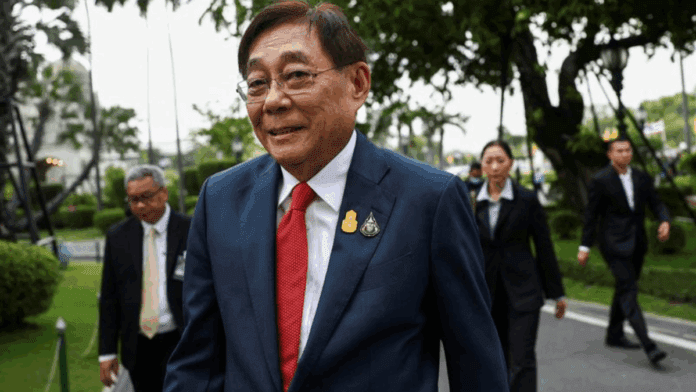Thailand is taking urgent steps to ease trade tensions with the United States. On Monday, Finance Minister Pichai Chunhavajira said the country is considering removing import taxes on more U.S. goods. The goal is to avoid a sharp increase in tariffs that could be placed on Thai exports in the coming weeks.
Thailand Acts Fast to Avoid Major U.S. Tariff Hike
If no agreement is reached by August 1, the United States plans to impose a 36% tariff on some Thai products. That would make these goods more expensive in the U.S. market and put pressure on Thai exporters.
To prevent this, the government may offer zero tariffs on additional imports from the U.S. This is seen as a goodwill move to keep negotiations on track and avoid serious economic fallout.
Alongside the tariff decision, the Thai government is launching a large-scale financial support program to help local businesses weather the impact. A 200 billion baht fund (approximately $6.1 billion) will be made available through soft loans to help exporters and manufacturers who may be affected by the U.S. tariffs.
200 Billion Baht in Soft Loans to Protect Thai Businesses
As trade uncertainty rises, the Thai government is preparing to support businesses through a major soft loan scheme. Finance Minister Pichai Chunhavajira confirmed that 200 billion baht will be made available in the form of low-interest, long-term loans. These soft loans are designed to offer quick and flexible support to companies facing increased costs due to the possible U.S. tariffs.
???? Tariff Windfall: U.S. Rakes in Record $113 Billion—Trump’s Trade War Pays Off
Soft loans are special financial tools that offer lower interest rates and easier repayment conditions than regular bank loans. They are often used in times of crisis to help small and medium-sized businesses stay operational. In this case, the loans aim to help Thai exporters maintain cash flow, pay workers, and manage supply chains if their U.S. orders drop.
Industries expected to benefit from the fund include:
- Export manufacturers in electronics, machinery, and automotive parts
- Seafood processors and agricultural exporters facing cost jumps
- Rubber and plastic industries, which ship heavily to the U.S.
- Small and medium-sized businesses connected to export chains
Minister Pichai noted that the loan program will be available quickly, with priority given to businesses directly affected by the potential tariffs. The fund is meant to act as a safety net, keeping factories open and jobs secure during this uncertain period.
U.S. Trade Link, Affected Sectors, and Global Pressure
Thailand and the United States have long shared strong trade relations. The U.S. is one of Thailand’s top export destinations, especially for goods such as auto parts, electronics, food products, seafood, and industrial components. A sudden 36% tariff would severely impact those sectors and weaken Thailand’s position in the global market.
???????? Trump Traps Vietnam in Tariff Storm: Is Hanoi the New Trade Pawn?
For example, car part suppliers may see fewer orders from U.S. automakers. Seafood and agriculture exporters, including shrimp and canned food producers, could lose price competitiveness. The electronics and tech sector, a key growth driver, may also experience slower demand due to increased costs.
These industries support millions of Thai workers and contribute significantly to the national economy. Any disruption in export activity could cause a domino effect, affecting transportation, farming, warehousing, and local services.
The situation is even more sensitive given the broader global trade climate. Countries worldwide are facing inflation, supply chain issues, and shifting trade rules. The United States has recently re-evaluated several of its trade deals, which has added pressure on smaller economies like Thailand to respond quickly and protect their interests.
By offering zero tariffs on more U.S. goods and rolling out a massive financial aid plan, Thailand is positioning itself to avoid greater damage. The August 1 deadline set by Washington now serves as a critical turning point.
For now, talks are still underway, but the government is preparing every possible measure to manage the impact. As Finance Minister Pichai Chunhavajira said, this is about protecting Thailand’s businesses, jobs, and long-term trade partnerships in an increasingly uncertain world.
